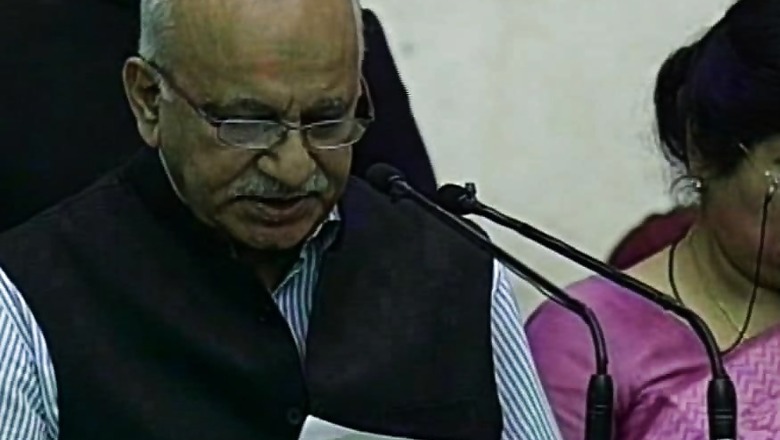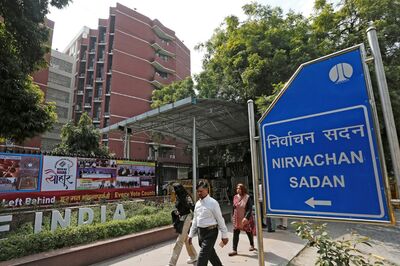
views
New Delhi: The visit of Minister of State for External Affairs M.J. Akbar to war-torn Syria, which has been taken note of around the world, will help India get information on the Islamic State (IS) and the involvement of Indians with the quasi-state terror outfit, observers feel.
Akbar met Syrian President Bashar al-Assad on August 20 when the latter sought India's help in the reconstruction of his country's economy and discussions were held on upgrading security consultations between the two sides. India's role in the fight against terrorism also figured during the talks.
"The IS is a major threat and India does not need it," former Indian Ambassador to Syria V.P. Haran told IANS. "Syria has a wealth of information on the IS," he said.
In 2014, IS made the Syrian city of Raqqa its headquarters and the city has come under airstrikes from the Syrian government, Russia, the US, France, Britan and other Sunni Arab nations that want the ouster of the Assad government as well.
Haran referred to reports of some Indians going to Syria to join the IS and pointed out that the Grand Mufti of Syria, Ahmad Badreddin Hassoun, during a visit here earlier this year, had said that people from 56 countries were lodged in Syrian jails.
"In mid-2012, there was a major operation in an area in Damsacus and I have reasons to suspect that at least one Indian was involved," he said. "If we get information on the IS now, it will be more valuable than getting it a year or two later."
The former ambassador described Akbar's visit as "most welcome" as it was the first major visit from India to Syria in six years after the visit of then President Pratibha Patil in 2010. Thereafter, Syria got embroiled in a civil war that has resulted in the death of over 400,000 people and displacement of over 11 million, including seven million who are internally displaced due to the protracted conflict that grips the country.
Syrian Deputy Prime Minister Wahid al-Muallem visited India in January this year during which he sought India's economic and political support.
According to Omair Anas, Research Fellow in the Indian Council for World Affairs (ICWA) and an expert on West Asian affairs, counter-terrorism cooperation between India and Syria will be possible only if Assad reconciles with some of his opponents.
"Assad calls all his opponents terrorists and expects India also to do so, which is not possible," Anas said.
He was of the view that the Assad regime would not survive for long if it continued to depend heavily on international support from countries like Iran and Russia.
"Our interest in West Asia is very different from that of Iran and Russia," Anas explained. "Security in West Asia is very important for India," he said, adding that India has not taken any sides in Syria.
In fact, during his meeting with Akbar, Assad appreciated India's "objective position" on the Syrian conflict.
According to Anas, India should not only look at the issue from the point of view of Indian Muslims going to Syria to join the IS, but from the perspective of other countries of South Asia like Nepal, Pakistan and Afghanistan as well.
"Only then will we get to know of jihadi operations in South Asia," he said. "India has to keep a watch on the entire South Asian region."
Apart from the IS being in full control of power in Raqqa, Anas said there were two other centres of power in Syria -- pro-Assad and and anti-Assad.
"And the anti-Assad group is badly divided with one group being an Al Qaeda offshoot and the other being the Free Syrian Army (FSA) which consists of Sunni soldiers who had defected from the Syrian army," he stated.
Anas also pointed out that there was virtually no Syrian army now but for a few Hezbollah forces and some Iranian army officers in an advisory role "but who are doing more than that". He said that while the Assad regime has control over the security apparatus in Damascus and some areas, the other Sunni areas were all under the control of anti-Assad forces.
The Alawites, of whom Assad is one and who constitute about 12 percent of Syria's 22 million original population, hold all top government positions and control major businesses.
As for India's role in the reconstruction of the Syrian economy, Ambassador Haran was of the view that it was a little premature for that as the situation was still not stable.
"A certain level of stability is required for reconstruction work to start," he said.




















Comments
0 comment